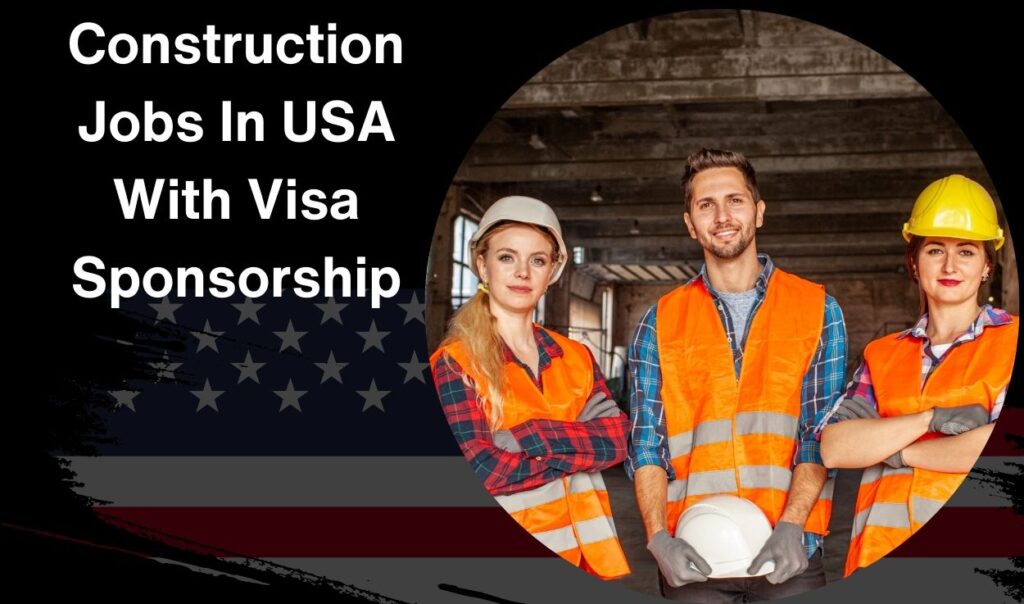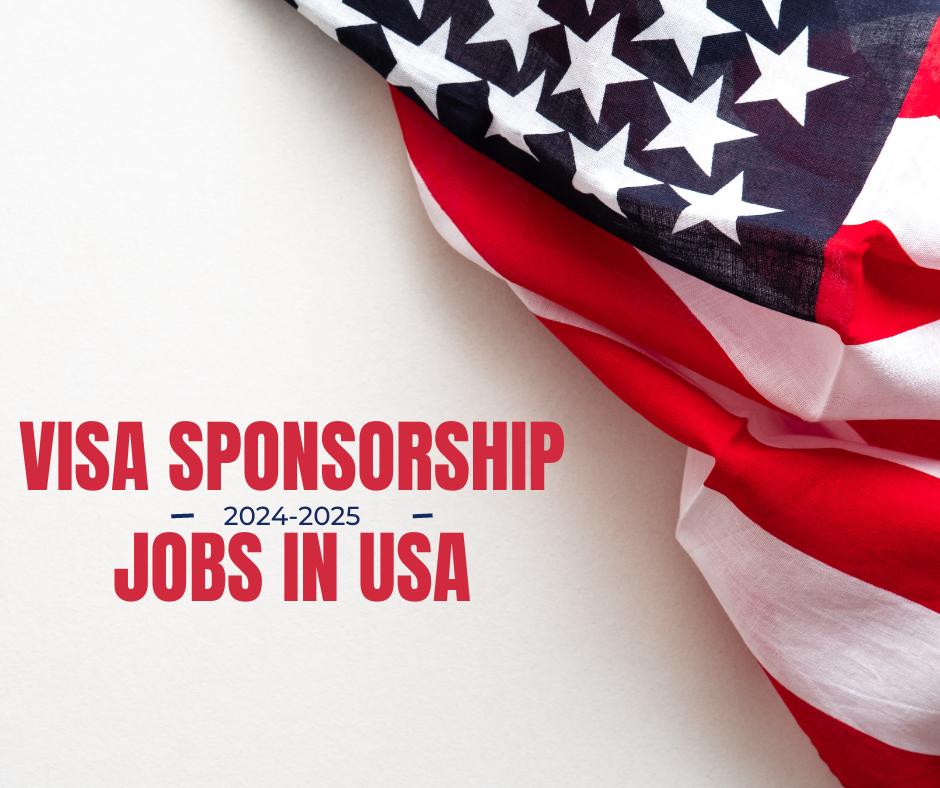The United States construction industry is experiencing a significant demand for skilled and unskilled labor, leading to an increase in opportunities for foreign workers seeking employment with visa sponsorship. This comprehensive guide explores the landscape of construction jobs in the USA that offer visa sponsorship, detailing the types of visas available, the roles in demand, and strategies for securing employment.

Visa sponsorship is a process where a U.S. employer offers a job to a foreign national and agrees to sponsor their visa application, enabling them to legally work in the United States. In the construction industry, several visa categories facilitate this process:
H-2B Visa: Temporary Non-Agricultural Workers
The H-2B visa program allows U.S. employers to hire foreign workers for temporary non-agricultural jobs, including construction roles. This visa is suitable for seasonal or peak-load needs and is commonly used for positions such as laborers, carpenters, and masons. Employers must demonstrate a shortage of U.S. workers for these roles and obtain a temporary labor certification from the Department of Labor.
H-1B Visa: Specialty Occupations
The H-1B visa is designed for foreign professionals in specialty occupations that require theoretical or technical expertise. In construction, this includes roles like civil engineers, architects, and construction managers. Applicants must possess at least a bachelor’s degree or equivalent experience. The visa is initially granted for three years and can be extended up to six years.
EB-3 Visa: Skilled and Unskilled Workers
The EB-3 visa category caters to skilled workers with at least two years of experience, professionals with a bachelor’s degree, and unskilled workers for positions requiring less than two years of training. This immigrant visa leads to permanent residency (green card) and is applicable to various construction roles.
In-Demand Construction Roles with Visa Sponsorship
The U.S. construction industry offers a range of positions for foreign workers, including:
- General Laborers: Engaged in tasks such as site preparation, material handling, and basic construction activities.
- Carpenters: Specializing in building frameworks, structures, and fixtures using wood and other materials.
- Masons: Working with bricks, stones, and concrete blocks to construct walls, walkways, and other structures.
- Electricians and Plumbers: Installing and maintaining electrical systems and plumbing in buildings.
- Heavy Equipment Operators: Operating machinery like bulldozers, cranes, and excavators for construction projects.
- Construction Managers: Overseeing construction projects, managing budgets, timelines, and coordinating teams.
Companies Offering Visa Sponsorship in Construction
Several U.S. companies are known to sponsor visas for foreign construction workers:
- Jacobs Engineering Group: A global engineering firm that has filed numerous H-1B visa applications for construction-related roles.
- PCL Construction: Offers internships and positions with H-1B visa sponsorship, particularly in project management and engineering.
- CDM Smith: Provides opportunities for construction specialists and project managers, with some roles offering visa sponsorship. Indeed+1LinkedIn+1
Strategies for Securing Construction Jobs with Visa Sponsorship
- Research and Identify Potential Employers: Utilize platforms like MyVisaJobs and LinkedIn to find companies with a history of sponsoring visas in the construction sector.
- Tailor Your Resume and Cover Letter: Highlight relevant experience, certifications, and willingness to relocate. Emphasize your adaptability and commitment to contributing to the U.S. construction industry.
- Leverage Job Portals: Websites like Indeed, ZipRecruiter, and Jooble list construction jobs with visa sponsorship options. Use filters to narrow down your search to positions that match your skills and visa requirements.
- Network with Industry Professionals: Join forums and groups related to construction management and international employment. Engaging with professionals can provide insights and potential job leads.
- Understand Visa Processes: Familiarize yourself with the application procedures, timelines, and documentation required for the H-2B, H-1B, and EB-3 visas to ensure a smooth application process.
Conclusion
The U.S. construction industry presents a wealth of opportunities for foreign workers seeking employment with visa sponsorship. By understanding the visa categories, identifying in-demand roles, and strategically approaching the job search, international professionals can successfully navigate the path to a rewarding career in the United States.

